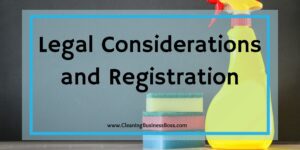Starting a cleaning company can be a rewarding entrepreneurial venture, offering opportunities for growth and profitability. Whether you’re looking to provide residential, commercial, or specialized cleaning services, embarking on this journey requires careful planning and execution.
To start a cleaning company, research the market, identify your target audience, develop a solid business plan, register your company, acquire essential equipment, and hire and train a skilled team.
Conducting Market Research
Before diving headfirst into the cleaning industry, conducting thorough market research is crucial. Understanding the demand for cleaning services in your target area and identifying potential competitors will help you position your business effectively. Consider the following key aspects:
Assessing Market Demand
To successfully start a cleaning company, it is crucial to assess the market demand for cleaning services in your target area. Begin by identifying the specific cleaning needs and demands of your potential customers. Determine whether there is a greater demand for residential cleaning, commercial cleaning, or specialized cleaning services like carpet cleaning or post-construction cleaning.
Conduct thorough research to understand the market trends and dynamics. Explore niche markets that may offer growth opportunities, such as eco-friendly or green cleaning services. By understanding the specific needs of your target market, you can tailor your services and marketing strategies to effectively meet those demands, giving your cleaning company a competitive edge.
Competitor Analysis
Analyzing the existing cleaning companies in your area is a crucial step in starting your own cleaning company. Conduct a comprehensive competitor analysis to gain insights into their services, pricing strategies, customer base, and reputation. This analysis will help you identify gaps in the market that you can capitalize on.
Examine the range of services offered by your competitors and determine if there are any services they are not providing or areas where their service quality is lacking. This will enable you to develop a unique selling proposition that differentiates your cleaning company from the competition. Additionally, studying their pricing strategies will help you set competitive and profitable pricing for your own services.
Assess the reputation of your competitors by checking online reviews and customer feedback. Identify any recurring complaints or areas where customers express dissatisfaction. This will guide you in delivering exceptional customer service and addressing the pain points that your competitors may have overlooked. Ultimately, a thorough competitor analysis will provide valuable insights to help you position your cleaning company for success in the market.
Check out this article to learn more on how to start a cleaning business.
Developing a Business Plan

A well-structured business plan serves as a roadmap for your cleaning company’s success. It outlines your goals, strategies, financial projections, and operational framework. Here are the key components to include:
Executive Summary
The executive summary provides a concise overview of your cleaning company and sets the tone for your business plan. It should encapsulate your company’s mission, vision, and the services you plan to offer. Clearly communicate the unique value proposition that sets your cleaning company apart from competitors. Highlight your commitment to exceptional customer service, quality cleaning, and any specialized or add-on services you plan to provide. The executive summary should inspire confidence in potential investors, partners, or lenders by showcasing the market potential and growth opportunities for your cleaning business.
Company Description
In the company description section, provide a detailed account of the legal structure of your cleaning company. State whether it is a sole proprietorship, partnership, or limited liability company (LLC), and include ownership information. Describe the background and experience of the key individuals involved in the company.
Additionally, outline the target market you intend to serve. Specify whether you plan to focus on residential cleaning, commercial cleaning, or both. Identify the geographic area or specific neighborhoods you will target. This description should demonstrate a clear understanding of your target market and how your cleaning services will meet their specific needs.
Services and Pricing
Define the range of cleaning services your company will offer in this section. List the core services, such as regular maintenance cleaning, deep cleaning, or specialized cleaning for specific surfaces or areas. Additionally, mention any add-on services you plan to provide, such as carpet cleaning, window washing, or organizing services.
Establish a pricing strategy that reflects the value you provide while remaining competitive in the market. Consider factors such as the size of the space to be cleaned, the frequency of service, and any additional requirements. Conduct thorough market research to ensure your pricing is fair and aligns with industry standards. Highlight any unique features or benefits of your services that justify your pricing structure.
Marketing and Sales
In the marketing and sales section, outline your strategies for attracting and retaining customers. Describe your online marketing efforts, including website development, search engine optimization (SEO), and social media presence. Explain how you plan to engage with potential clients through targeted advertising or content marketing.
Consider networking with local businesses, building partnerships, or offering referral programs to expand your customer base. Highlight any unique promotional activities or discounts you plan to offer to attract new clients. Demonstrate an understanding of your target audience and how your marketing efforts will effectively reach and resonate with them.
Operations and Management
Explain the operational processes involved in running your cleaning business. Detail how you will recruit, train, and manage your cleaning staff. Emphasize your commitment to quality control by outlining the measures you will implement to ensure consistent and excellent service delivery.
Describe any specialized training programs you plan to provide to your staff to enhance their cleaning skills or customer service abilities. Address how you will handle scheduling, manage equipment and supplies, and maintain high standards of cleanliness and professionalism. This section should demonstrate your expertise in managing the day-to-day operations of a successful cleaning company.
Financial Projections
Create a comprehensive financial plan to provide an overview of your cleaning company’s financial viability. Include startup costs, such as equipment purchases, marketing expenses, and initial staffing requirements. Develop revenue projections based on your target market, pricing strategy, and anticipated sales volume.
Outline your projected expenses, including labor costs, insurance, cleaning supplies, and overhead expenses. Provide a breakdown of your projected income and expenses on a monthly or yearly basis. This financial analysis will help you determine pricing structures, funding requirements, and estimate the timeline to profitability. It is crucial to demonstrate a sound understanding of your financial projections to instill confidence in potential investors or lenders.
Legal Considerations and Registration

To ensure compliance and establish a legitimate business entity, several legal considerations must be addressed:
Business Registration
When starting a cleaning company, it is essential to register your business with the appropriate government authorities. Research the specific requirements in your jurisdiction and complete the necessary paperwork to establish your company as a legal entity. This may involve obtaining a business license, registering for taxes, and fulfilling any local or state regulations.
By registering your cleaning company, you gain credibility and demonstrate your commitment to operating within the legal framework. It also allows you to access certain benefits, such as business banking services and potential government contracts. Compliance with legal requirements is crucial to protect your business and ensure a smooth operation in the long run.
Insurance Coverage
Obtaining liability insurance is a crucial step in protecting your cleaning company and clients. Accidents or damages can occur during cleaning operations, and liability insurance provides coverage for potential claims or lawsuits. It safeguards your business financially and provides peace of mind to your clients.
Research insurance providers that specialize in commercial cleaning liability coverage. Evaluate different policies and select one that suits the specific needs of your business. This insurance should cover property damage, bodily injury, and other potential risks associated with your cleaning services. Having comprehensive insurance coverage demonstrates professionalism, builds trust with clients, and protects your business from unforeseen circumstances.
Contracts and Agreements
Developing contracts or service agreements is essential to establish clear expectations and protect the interests of both your cleaning company and clients. These documents outline the terms and conditions of your cleaning services and provide a legal framework for your business relationships.
Include key details such as pricing, payment terms, scope of work, and any additional services or supplies provided. Address policies on cancellations, rescheduling, and liability disclaimers. Consult with a legal professional to ensure your contracts comply with local laws and adequately protect your business.
Having well-drafted contracts and agreements enhances transparency and minimizes potential misunderstandings or disputes. It sets clear boundaries and expectations for both parties, ensuring a smooth and professional working relationship.
Acquiring Essential Equipment and Supplies
Equipping your cleaning company with the necessary tools and supplies is vital for delivering efficient and high-quality services. Consider the following:
Cleaning Equipment
Investing in high-quality cleaning equipment is essential to deliver professional and efficient cleaning services. Consider purchasing commercial-grade equipment such as vacuum cleaners, floor scrubbers, carpet cleaners, and window washing tools. These tools are designed to handle heavy use and can withstand the demands of commercial or residential cleaning tasks.
Evaluate your specific service offerings and select equipment accordingly. For example, if you plan to offer specialized services like carpet or window cleaning, invest in equipment specifically designed for those tasks. Research reputable brands and read reviews to ensure the durability and performance of the equipment you choose.
Regularly maintain and service your cleaning equipment to extend its lifespan and maximize its efficiency. Well-maintained equipment not only ensures quality cleaning results but also reduces downtime and costly repairs.
Cleaning Supplies
Stocking up on a variety of cleaning supplies is essential to effectively tackle different cleaning tasks. Purchase detergents, disinfectants, microfiber cloths, mops, brooms, and gloves to meet the needs of your clients. Consider offering eco-friendly or green cleaning options to cater to the growing demand for sustainable cleaning practices.
Research suppliers and compare prices to find the best deals on quality cleaning supplies. Buying in bulk can help save costs and ensure you have an adequate supply on hand. Stay updated with industry trends and advancements in cleaning products to provide the best solutions to your clients.
Maintain an organized inventory system to track and restock your cleaning supplies efficiently. Regularly assess your inventory to identify any shortages and avoid running out of essential items during cleaning appointments.
Transportation
If your cleaning services require on-site visits, having reliable transportation is crucial. Consider investing in a company vehicle that can safely transport your equipment and supplies to various locations. Choose a vehicle that is spacious enough to accommodate your cleaning tools and supplies.
Maintain the company vehicle by scheduling regular maintenance and inspections. This ensures that it remains in good condition and minimizes the risk of breakdowns or delays.
Additionally, establish efficient route planning to optimize your travel time and reduce fuel expenses. Use GPS or route planning software to navigate between different client locations effectively.
Reliable transportation enables you to provide timely and consistent cleaning services to your clients. It reflects professionalism and reliability, contributing to customer satisfaction and loyalty.
Hiring and Training Staff

Building a skilled and reliable team is essential for the success of your cleaning company. Follow these steps to recruit and train competent employees:
Define Job Roles
In order to establish clear expectations and promote efficient workflow within your cleaning company, it is important to define job roles and responsibilities for each position. Outline the duties and responsibilities of cleaners, supervisors, and administrative staff.
For cleaners, specify their cleaning tasks, such as dusting, vacuuming, mopping, or specialized cleaning services. Provide guidelines on maintaining cleanliness and sanitation standards. Define expectations regarding punctuality, professionalism, and adherence to safety protocols.
Supervisors should be responsible for overseeing cleaning operations, managing staff schedules, conducting quality checks, and addressing customer concerns. Administrative staff may handle customer inquiries, scheduling, invoicing, and general administrative tasks.
Clearly defined job roles establish clarity and accountability within your team, ensuring everyone understands their responsibilities and contributes to the overall success of the company.
Recruitment Process
Develop a comprehensive recruitment process to attract and select qualified individuals for your cleaning company. Advertise job vacancies through various channels, such as online job boards, social media platforms, or local classifieds. Screen resumes and conduct interviews to assess candidates’ skills, experience, and suitability for the role.
Consider conducting background checks and checking references to verify candidates’ work history and reliability. Look for individuals who demonstrate a strong work ethic, attention to detail, and excellent customer service skills.
During the interview process, ask relevant questions to assess their cleaning knowledge, ability to follow instructions, and problem-solving skills. Additionally, evaluate their compatibility with the company culture and values.
A thorough recruitment process helps you hire skilled and reliable staff who will contribute to the success of your cleaning company.
Training and Development
Invest in comprehensive training programs to equip your staff with the necessary skills and knowledge for their roles. Provide training on effective cleaning techniques, proper use of equipment and cleaning agents, and adherence to safety procedures.
Additionally, emphasize the importance of delivering exceptional customer service. Train your staff on effective communication, professionalism, and problem-solving skills to ensure positive interactions with clients.
Stay updated with industry advancements and changes in cleaning practices. Offer ongoing training and development opportunities to keep your staff’s skills current and relevant. This may include workshops, seminars, or online courses.
Regularly evaluate your staff’s performance and provide constructive feedback to identify areas for improvement and encourage professional growth. A well-trained and motivated team contributes to the overall success and reputation of your cleaning company.
Here’s another article on how to start your cleaning business. Check it out here.
Summary
Starting a cleaning company requires careful planning, market research, and strategic execution. By following the steps outlined in this comprehensive guide, you’ll be well-equipped to establish a successful and profitable cleaning business. Remember to adapt and innovate as the industry evolves, consistently deliver exceptional service, and prioritize customer satisfaction. With dedication and perseverance, your cleaning company can thrive in this competitive market.
Frequently Asked Questions
Can I start a cleaning company part-time while working another job?
Yes, starting part-time is a viable option. However, ensure you have enough time and resources to manage both responsibilities effectively.
How long does it take to establish a profitable cleaning company?
The timeline varies depending on various factors, including market conditions, competition, marketing efforts, and quality of service. It may take several months to a few years to establish profitability.
Should I consider franchising options for my cleaning company?
Franchising can offer advantages such as brand recognition and support, but it also comes with fees and restrictions. Evaluate the pros and cons and consider if franchising aligns with your business goals.
To learn more on how to start your own cleaning business, check out my startup documents here.
Please note that the contents of this blog are for informational and entertainment purposes only and should not be construed as legal advice. Any action taken based on the information provided in this blog is solely at your own risk. Additionally, all images used in this blog are generated under the CC0 license of Creative Commons, which means they are free to use for any purpose without attribution.

About the author. Entrepreneur and Cleaning Business Fan.
Hi! I am Shawn and I am a happy individual who happens to be an entrepreneur. I have owned several types of businesses in my life from a coffee shop to an import and export business to an online review business plus a few more and now I create online cleaning business resources for those interested in starting new ventures. It’s demanding work but I love it. I do it for those passionate about their business and their goals. That’s why when I meet a cleaning business owner, I see myself. I know how hard the struggle is to retain clients, find good employees and keep the business growing all while trying to stay competitive.
That’s why I created Cleaning Business Boss: I want to help cleaning business owners like you build a thriving business that brings you endless joy and supports your ideal lifestyle.

